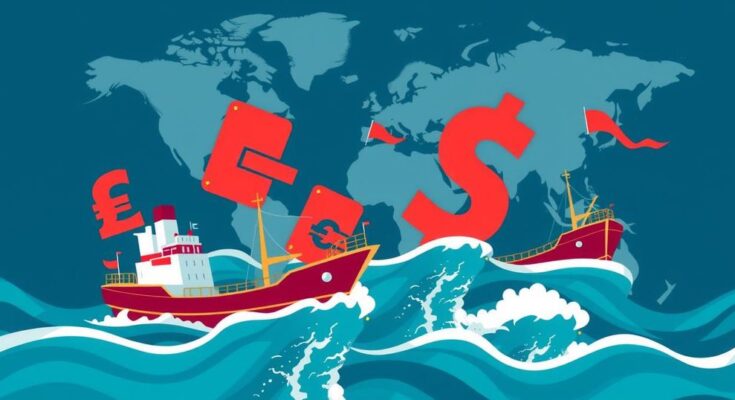Mark Carney, Canada’s new leader, faces the challenge of negotiating with President Trump on tariffs while planning for an upcoming federal election. His acceptance speech emphasized Canadian independence, setting the tone for his leadership approach amidst the shifting political landscape.
Mark Carney, the newly elected leader of the Liberal Party and imminent Prime Minister of Canada, faces significant challenges ahead of the federal election. He must navigate his role by both confronting and negotiating with United States President Donald J. Trump, particularly regarding tariffs and other contentious issues. Carney’s unique experience includes overcoming crises such as the 2008 financial collapse and Brexit, which may aid him in this diplomatic endeavor.
Carney’s election signals a new political chapter, concluding the administration of Justin Trudeau. During his acceptance speech, he emphasized the independence of Canada, declaring, “America is not Canada, and Canada never, ever, will be part of America in any way, shape or form.” This statement underscores Carney’s firm stance against any suggestions of American dominance over Canadian affairs.
The upcoming federal election poses a critical moment for Carney as he balances appealing to his party and the electorate while also engaging with Trump. Successfully outlining a strategy to address tariffs, while simultaneously advocating an anti-Trump position, will be imperative for winning Canadian support. Carney’s leadership and approach to international relations will significantly influence Canada’s future regarding its relationship with the U.S.
In summary, Mark Carney’s ascension as Canada’s new leader presents both challenges and opportunities. His ability to negotiate with President Trump on tariffs while maintaining a strong Canadian identity is crucial ahead of the federal election. Carney’s prior experience with economic crises may provide him with the tools necessary to navigate these complex dynamics effectively.
Original Source: www.nytimes.com




